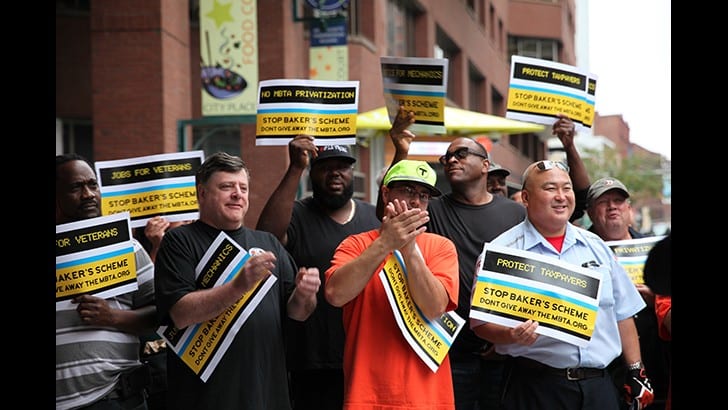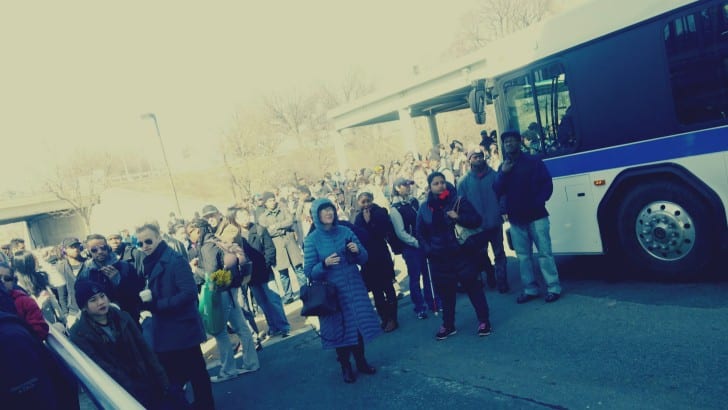More Mass residents have died from COVID-19 than all the Mass soldiers killed in WWII, but let’s “get back to normal,” right?
Evolving the way the world moves … beyond Uber (and Lyft)
July 7, 2017
BY JASON PRAMAS @JASONPRAMAS
The following column was written as commentary for the July 2017 episode of the Beyond Boston monthly video news digest — produced by the Boston Institute for Nonprofit Journalism and several area public access television stations. It’s aimed at suburbanites, but fun for the whole Boston area family.
Over the years, I’ve often written about how to improve public transportation in the Bay State. But this time out, rather than rehash my standing call for the legislature to raise taxes on the rich and corporations to properly fund such a necessary service, I’d like to take a different tack and discuss a topic germane to the future of both transportation in general and public transportation in particular. Specifically, the so-called ridesharing industry pioneered by corporations like Uber and Lyft.
Ridesharing is a transportation system in which riders and drivers interact via software on cell phones, rather than going through human dispatchers. The software allows riders to see which drivers are near them, and to have the closest one assigned to them. It provides price estimates for rides, features seamless automatic payments from rider to driver at the end of each trip — and it incentivizes simple but important things like drivers keeping their vehicles clean.
One would think this ridesharing system would be great for riders and drivers alike, but that’s not the case. The problem with ridesharing … is that it’s not really ridesharing. That is, Uber and Lyft and smaller companies like Fasten completely control their operations from top to bottom. Including the economic structure that determines how much riders will pay in fares — and what cut of those fares go to drivers. This system is non-transparent and largely unregulated.
An actual ridesharing system would be controlled by its riders and drivers. It could, and I would posit should, be publicly managed. In short, rather than allow ridesharing companies to assist in the dismantling of existing public transit systems like the MBTA by gradually privatizing them, those systems — or agencies set up by individual cities — could run municipal ridesharing services at cost.
Fares would be regulated in ways that would ensure riders the best fares — which poor and working class riders would be able to consistently afford. A small percentage of each fare would go to the municipal rideshare service to develop and maintain the necessary software and infrastructure. Then all the extra money that presently flows into the coffers of Uber and Lyft top brass and investors would be paid to drivers in the form of the best possible wages.
Such a service would be an excellent adjunct to public trains and buses, and would make it much easier for everyone to get from point A to point B. Plus it would be far more democratic because it could be organized to ensure that riders and drivers would play a large role in managing the service. It could even be run as a hybrid of a consumer and a worker cooperative. And democratically controlled from top to bottom. Restricting the growth of Uber and Lyft to something like their natural share of the private transportation market by its mere existence.
Going the public route — or at least a similar nonprofit route being experimented with by RideAustin in Austin, TX — would satisfy the needs of the loyal base of Uber and Lyft clients by providing comparable service at a better price point. And it would also satisfy the needs of a whole new layer of riders who will be able to afford access to new municipal ridesharing services on a regular basis — in addition to public buses, trolleys, and trains. All while paying living wages to drivers. Who are, after all, the backbone of the current corporate ridesharing system. But who are also the most exploited by it.
Apparent Horizon is syndicated by the Boston Institute for Nonprofit Journalism. Jason Pramas is BINJ’s network director, and executive editor and associate publisher of DigBoston. Copyright 2017 Jason Pramas. Licensed for use by the Boston Institute for Nonprofit Journalism and media outlets in its network.




